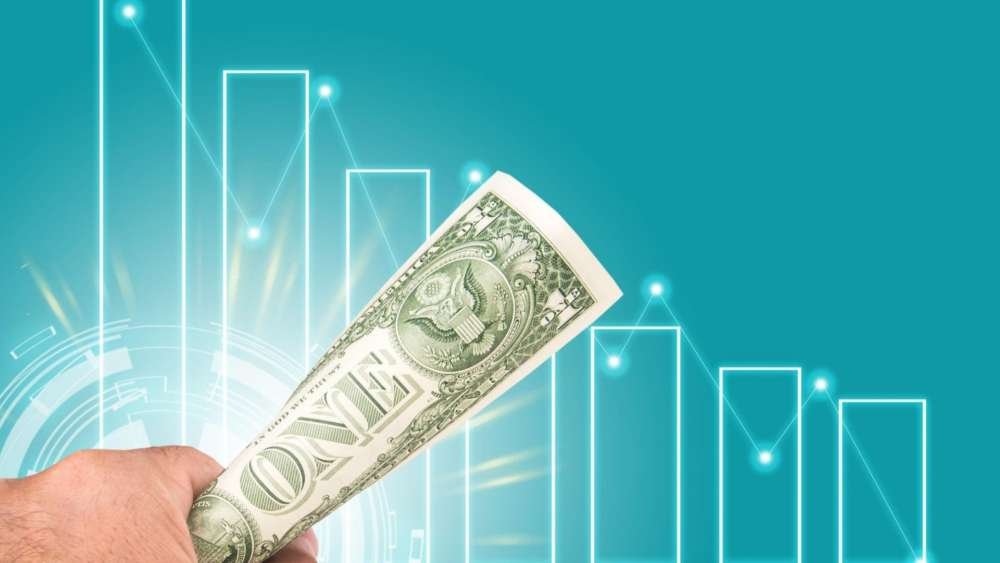The latest rise in gold is just a function of the recent weakness in the dollar
Published by linker 5
Posted on July 29, 2020
4 min readLast updated: January 21, 2026

Published by linker 5
Posted on July 29, 2020
4 min readLast updated: January 21, 2026

By Rupert Thompson, Chief Investment Officer at Kingswood
Last week was really a week of two halves as far as equity markets were concerned, with initial gains subsequently reversed, leaving markets down a little over the week as a whole.
A further escalation of tensions between China and the US, with the tit-for-tat embassy closure, was the most obvious reason for the change in market tone. But the continuing uncertainties over the prospects for the economic recovery may also have contributed.
Last week’s economic data on the face of it looked encouraging but in reality was rather less so. Business confidence recovered further in July and is now back above pre-Covid levels in the UK and Europe. However, these surveys basically just ask businesses whether conditions are improving or not. Given how dire the position was a couple of months ago, the fact that most businesses are now saying things are getting better is hardly a sign that the economy is back to normal.
Retail sales have also shown a sharp V-shaped recovery and in June, in both the UK and US, they had regained almost all their collapse in March/April. But again this is not as reassuring as it first looks. It is far from clear how much of this bounce just reflects one-off pent-up demand and will not be sustained going forward. Retail sales also only account for around 30% of total consumer spending. The recovery in spending on services etc. is likely to have been much more subdued.
In short, the debate over the strength of the recovery from here is alive and kicking, not least because the outlook is so dependent on how soon a vaccine is developed and rolled out and whether there is a major secondary spike in infections. Recent news has been encouraging on the former but discouraging on the latter, with infections still not under control in the US and also now picking up again in Europe.
The outlook hinges not only on the virus but also on the government’s policy response. For Europe at least, there was good news last week. At the eleventh hour after a marathon summit, EU leaders finally managed to overcome resistance from their more frugal members and agree an economic recovery package totalling €750bn or 5% of EU GDP. For the first time ever, the EU itself – rather than just individual countries – will issue debt to finance a mixture of grants and loans to EU states.
This week, it will be the turn of the US to try to agree a new fiscal stimulus package to replace the current support measures which expire at the end of July. As with the EU, the terms of the new package are being fought over tooth and nail, this time by the Democrats and Republicans.
One asset which has performed very well this year has been gold and its price rose a further 5% last week, breaking above $1900 and its previous high in 2011. The gold price is now up over 25% so far this year. Gold is the archetypal safe haven risk-off asset and one would expect it to do well in a time such as now of heightened economic uncertainty and geo-political tension.
However, the scale of its gains are down in good part to the super low level of interest rates. Government bonds used to be an obvious source of protection for portfolios in the event of a major sell-off in risky assets. Now, by contrast, the scope for further declines in yields is minimal with rates already so low, and the ability for bonds to provide such protection is much reduced. In addition, with government bonds now yielding virtually nothing, the fact that gold pays no income is no longer a particular disadvantage.
These various factors mean gold should remain well supported for the time being and could well rise further. But one shouldn’t forget that gold is volatile. If and when we do eventually see a return towards normality, gold could well retreat significantly. After all, the gold price more than doubled in the three years following the global financial crisis, only then to unwind half of those gains over the following couple of years. Finally, for UK investors, there is also currency risk associated with investing in gold with part of the latest rise in gold just a function of the recent weakness in the dollar. Gold may be a risk-off asset but it is a risky one.
Explore more articles in the Investing category











